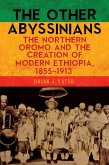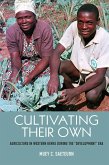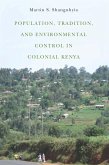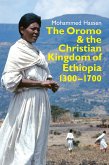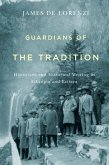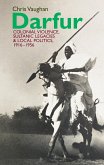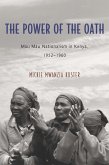Reframes the story of modern Ethiopia around the contributions of the Oromo people and the culturally fluid union of communities that shaped the nation's politics and society.
Although the Oromo are the largest ethnic group in Ethiopia, their history has been distorted in order to buttress twentieth-century notions of a homogeneous Ethiopian state. The Other Abyssinians tells the story of the Oromo people's contribution to modern Ethiopia, tracing their experiences from the early nineteenth century onward and detailing the varied interactions of Oromo groups throughout the Ethiopian highlands. Focusing on the historic provinces of Wällo and Shäwa, this well-researched work elucidates the importance of these territories in the creation of Ethiopia and the history of the Oromo. It casts the Oromo as Abyssinians and central in all aspects of modernEthiopian life, while making a case for Ethiopia, a nation without a colonial legacy, as an example of indigenous African identity formation that challenges notions of "tribal" or ethnic identities.
Author Brian J. Yates details the cultural practices that integrated the populations of the highlands into the Abyssinian group; in addition, he analyzes the political structures that evolved concurrently. The book, notably, utilizes a community-based framework to underscore the fluidity of modern national identity. All in all, the work offers a close study of Ethiopian modernization policies and illuminates how Africans might have crafted their nations without the legaciesof colonialism.
BRIAN J. YATES is an Associate Professor of History at Saint Joseph's University.
Although the Oromo are the largest ethnic group in Ethiopia, their history has been distorted in order to buttress twentieth-century notions of a homogeneous Ethiopian state. The Other Abyssinians tells the story of the Oromo people's contribution to modern Ethiopia, tracing their experiences from the early nineteenth century onward and detailing the varied interactions of Oromo groups throughout the Ethiopian highlands. Focusing on the historic provinces of Wällo and Shäwa, this well-researched work elucidates the importance of these territories in the creation of Ethiopia and the history of the Oromo. It casts the Oromo as Abyssinians and central in all aspects of modernEthiopian life, while making a case for Ethiopia, a nation without a colonial legacy, as an example of indigenous African identity formation that challenges notions of "tribal" or ethnic identities.
Author Brian J. Yates details the cultural practices that integrated the populations of the highlands into the Abyssinian group; in addition, he analyzes the political structures that evolved concurrently. The book, notably, utilizes a community-based framework to underscore the fluidity of modern national identity. All in all, the work offers a close study of Ethiopian modernization policies and illuminates how Africans might have crafted their nations without the legaciesof colonialism.
BRIAN J. YATES is an Associate Professor of History at Saint Joseph's University.
Dieser Download kann aus rechtlichen Gründen nur mit Rechnungsadresse in A, D ausgeliefert werden.



